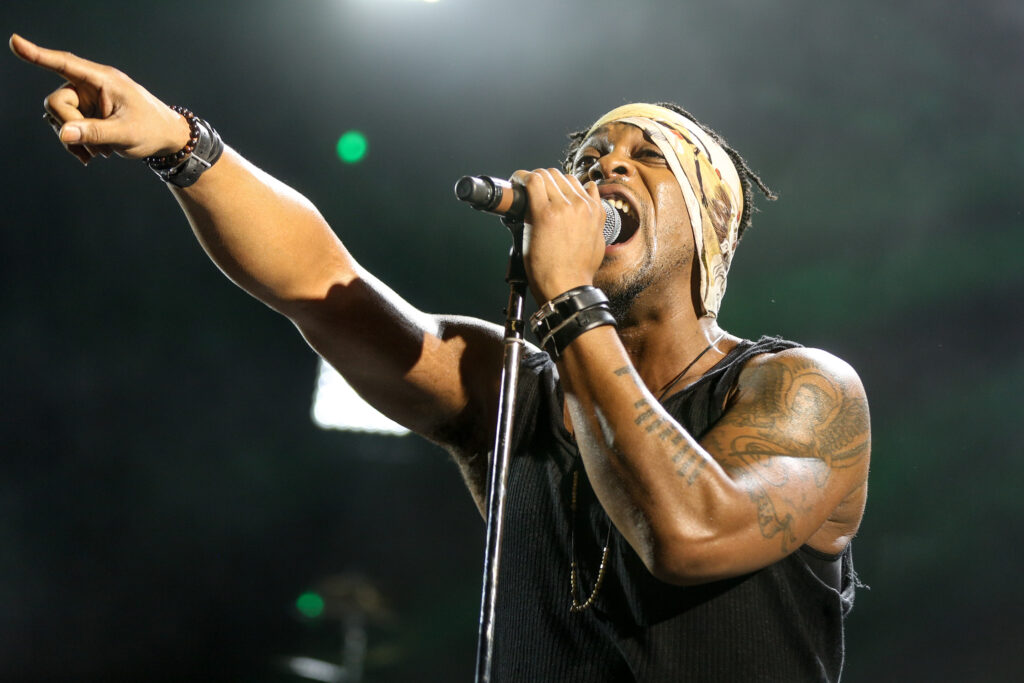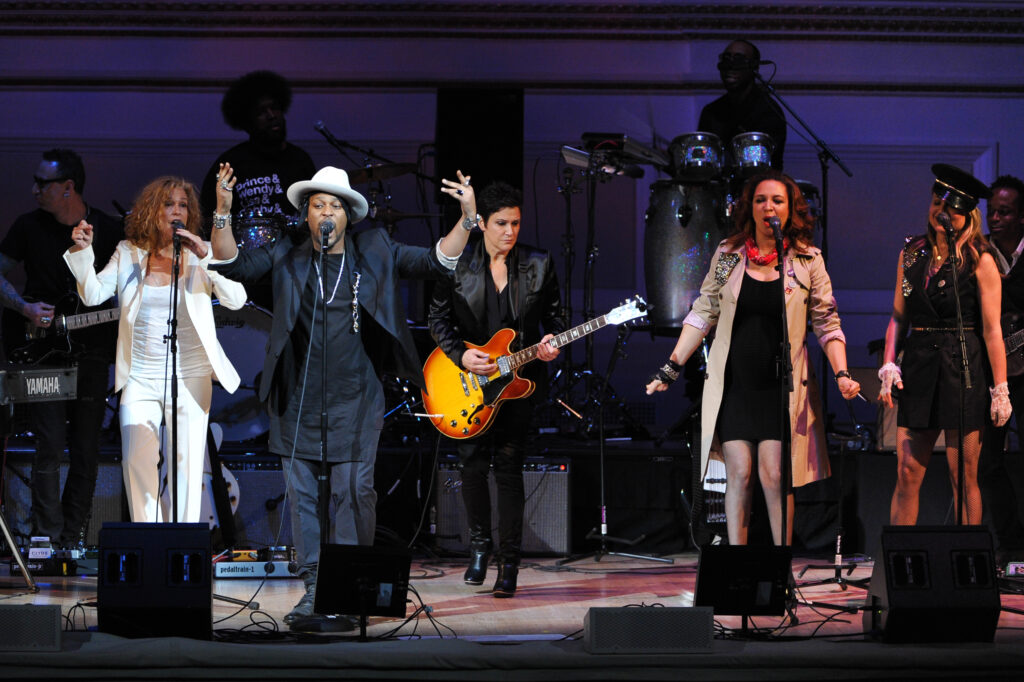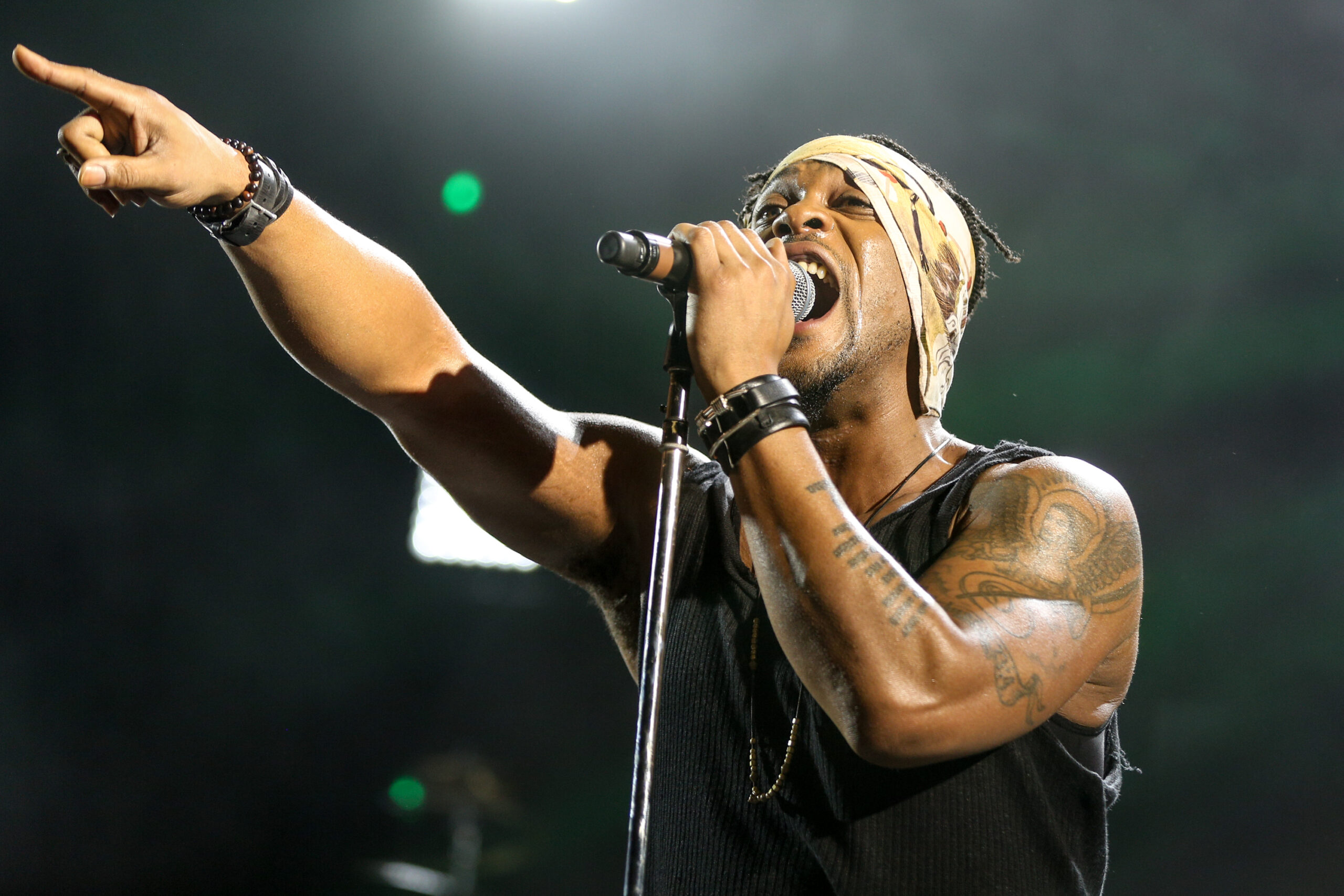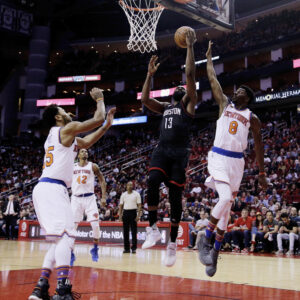When Michael Eugene Archer, aka D’Angelo, who died at the age of 51 on Oct. 14, burst on the scene in 1995 with his mellow-toned, mid tempo hit “Brown Sugar,” he blew me away, not because I hadn’t heard anything like him before; it was because I had heard something like him before. I was in my mid-30s when he first hit the airwaves. It was the classic age of hip-hop, when A Tribe Called Quest, De La Soul, Run DMC, Snoop, Doctor Dre, Tupac, and Biggie rocked the mic. There really wasn’t anybody for that generation that was carrying the soul/R&B baton on the airwaves.
And then D’ Angelo entered the stage with his Virginia-born, below the Mason-Dixon Line, behind-the-beat vocals, augmented by the warm chords of his Fender Rhodes keyboard, supported by the pocket basslines and head-bobbing drum kicks, all delivered with the gravitational pull of that rhythmic gravity we call swing, that married the Saturday night function to the Sunday morning church service, which gave birth to jazz, and afrocentrically animated the vibrant voices of Marvin Gaye, Sam Cooke, and Al Green. I heard all of those sounds coming from that cornrowed, magnificently melanated man child. His album, titled “Brown Sugar,” also yielded his other hits, “Lady,” “Me and Those Dreamin’ Eyes of Mine,” and his cool cover of Smokey Robinson’s “Cruisin.” All of those tracks from D’ Angelo’s stunning debut gave birth to the neo soul movement, which also included Jill Scott, Erykah Badu, and The Roots, to name a very select few.

D’Angelo’s “Brown Sugar” was a delicious appetizer, and we waited five years before he delivered his main course: his game changing second album, “Voodoo.” The importance of this release cannot be overstated. It featured a more compelling, confident D’ Angelo with a star-studded cast that included Questlove, drummer, producer and co-founder of The Roots, jazz trumpet phenom Roy Hargrove, Charlie Hunter — a master of the eight-string guitar who simultaneously plays lead and bass parts, guitarist/vocalist Raphael Saadiq, bassist Pino Palladino, rappers Q-Tip, duo Method Man & Redman, and D’Angelo’s ex-life partner, Angie Stone, who tragically died earlier this year. Master engineer Russell “ The Dragon” Elevado recorded it at the legendary Electric Lady Studios in New York City.
Simply put: “Voodoo” was neo soul on sonic steroids. On the album’s first single, the bouncy ballad “Untitled (How Does It Feel,)” D’ Angelo literally holds nothing back, singing in his birthday suit on the video – much to the delight of his fans. The album also included the bangers “Chicken Grease,” and “Devil’s Pie,” previously heard on the soundtrack for the 1998 film, “Belly,” and a spare and sexy remake of Roberta Flack’s “Feel Like Makin’ Love.” The two standout selections on “Voodoo” are “Spanish Joint,” an Afro-Cuban, clave-coded, salsa-syncopated composition, laced by Hargrove’s succinct and suave hornlines and Hunter’s gutbucket guitar grooves, and “Africa,” an afro-impressionistic, minimalist tone poem to the Motherland, profoundly pulsed by Questlove’s dancing drums and D’ Angelo’s impassioned vocal cries that spanned the Great Migration from the slave dungeons to the wilderness of North America.
We would wait again for D’ Angelo’s third album to drop. This time it would be fourteen years before he released “Black Messiah,” his twelve-track opus with his group The Vanguard. The recording, which many critics compared to Sly and the Family Stone’s masterpiece “There’s a Riot Going On, “ earned D’Angelo a Grammy in 2016 in the category of Best R&B Album. Here, D’ Angelo’s evolution is aurally evident, not only as a singer but as a composer of the Parliament-Funkadelic-like, “Ain’t That Easy,” the melanin-metal motored, “1000 Deaths” and “Really Love,” the Curtis Mayfield fueled successor to “Brown Sugar.”

In between those three albums, there was a lot of D’ Angelo to see on TV and video. Two appearances stand out for me. There was his outstanding 1997 Valentines Day performance with Questlove, Saadiq on lead guitar, Ali Shaheed Muhammad of A Tribe Called Quest on bass and rhythm guitarist Spanky Alford, performing a spirited R&B/gospel medley that included “Lady” and The Ohio Players’ “Fire.” I remember proclamations that the group would be going on tour that summer, but sadly that wasn’t the case.
And then there was D’Angelo’s tribute to Prince on “The Tonight Show Starring Jimmy Fallon” in 2016, with his haunting and heartbreaking rendition of Prince’s “Sometimes it Snows in April.” Backed by Princess, a Prince duo cover band featuring vocalists Maya Rudolph and Gretchen Lieberum, D’ Angelo at the piano delivered his tearful take on the song, clearly overcome with emotion and breaking down, with Rudolph and Lieberum filling in for him.
The death of a musician also seems premature, but D’Angelo’s passing feels like something has been taken away from us. With just three recordings, he reminded us that R&B is not a deceased ancestor to hip-hop: it is a living genre, which gave birth to a shining star like him.






